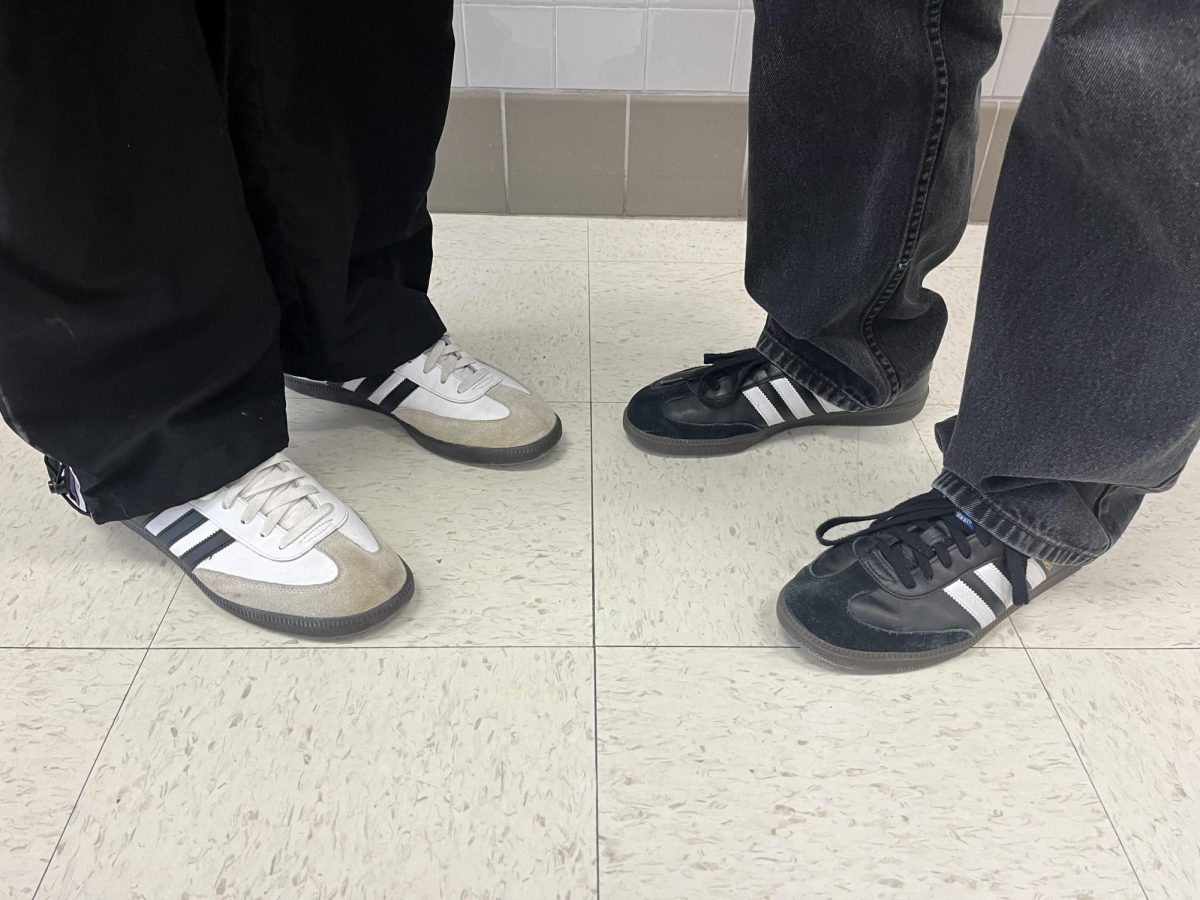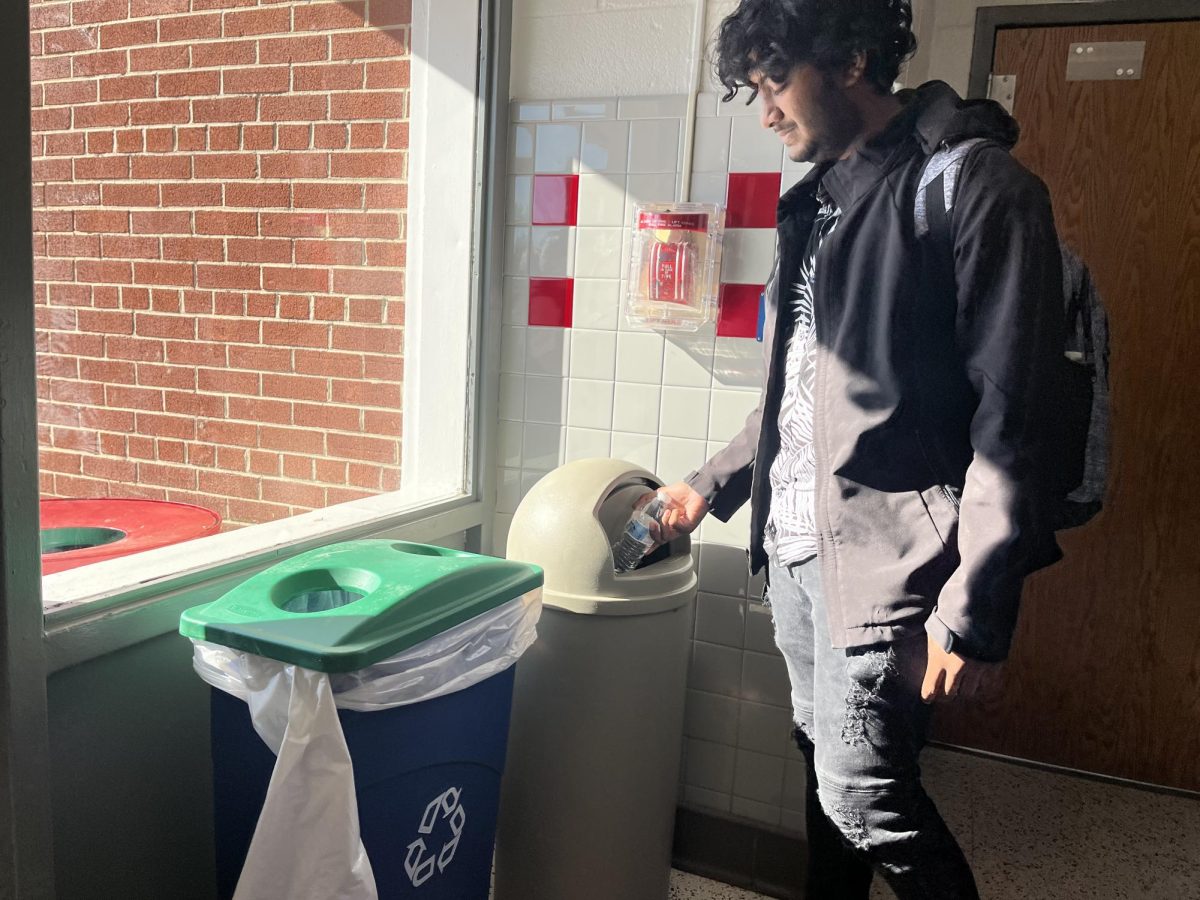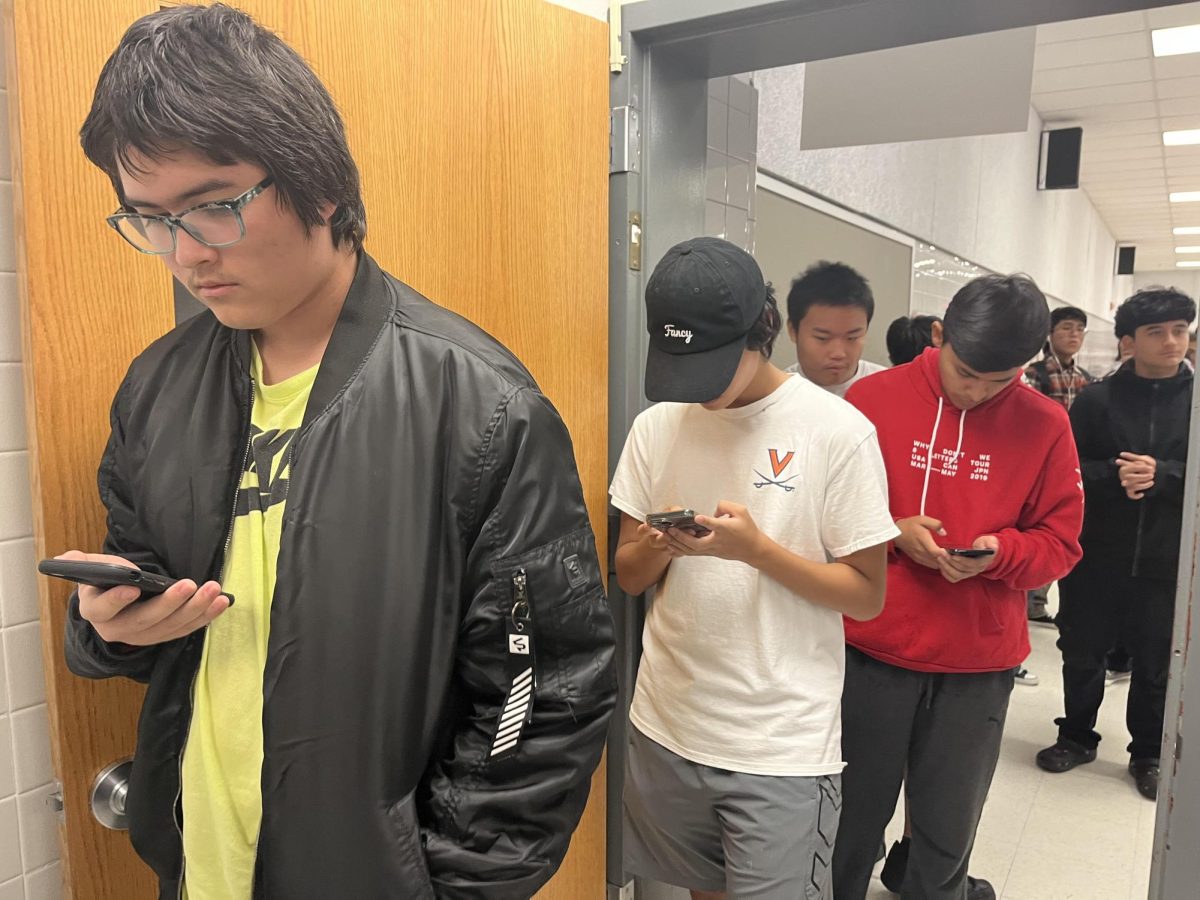I am writing in regards to the article “What Monster hides in that extra boost of energy?” published in the May 12, 2010 issue of the A-Blast.
While the article discusses generally that energy drinks are unhealthy, I would like to provide more information to persuade folks to limit or avoid these products.
I also would like to bring attention to the fact that energy drinks are not allowed on school grounds (see below).
The statement that “…one average energy drink [has]…caffeine equivalent to a cup of brewed coffee, or two cans of Coke or Pepsi” is misleading.
The amount of caffeine in different coffees and different energy drinks vary considerably.
While it is true that some energy drinks only contain about 75-80 mg of caffeine, a lot contain a range from 140mg to over 300mg of caffeine.
Coffee made at home ranges from 50-150mg of caffeine, while Starbucks ranges from 75-330mg of caffeine depending on what you order and the size.
Coke and Pepsi have less than 40mg per can – so really, many energy drinks have caffeine equivalents of 4-6 cans of cola.
Since caffeine is found in varying amounts of colas, coffee, and energy drinks, it is hard to therefore make a general correlation equivalent for these drinks.
A list of caffeine amounts is available here: www.energyfiend.com/the-caffeine-database.
It is recommended that adults not consume more than 300 mg of caffeine daily.
This is a recommendation for the whole day, not in one 12 oz can of an energy drink.
According to Teens Health, the recommendation for caffeine is no more than 100mg per day – that rules out a lot of caffeinated beverages! (www.kidshealth.org/teen/food_fitness/nutrition/caffeine.html#).
In addition to caffeine, energy drinks contain large amounts of sugar, and other ingredients (the article mentioned some but not all) that claim to boost energy.
Large amounts of caffeine and sugar can lead to negative side effects such as heart palpitations, stomach upset, insomnia, and headaches which the article also mentions.
The other additives and ingredients may or may not improve your energy levels, may or may not have side effects themselves, and are not all regulated by the Food and Drug Administration (FDA) – meaning there is no way of knowing what you’re ingesting and if it really works or causes harm.
If you notice on the cans of some of the energy drinks, there is a statement that says “For adult consumption only.”
I can only speculate as to why some of the products contain this note and some do not.
The problem with energy drinks is that many contain large amounts of caffeine, sugar, and other additives that can be too much for the body to handle at once (therefore side effects occur).
I would encourage the readers to look at articles that discuss the dangers of consuming energy drinks.
Young people have been rushed to the hospital for palpitations and even seizures.
To read an article (KMOV.com, Feb 22, 2010) on seizures resulting from energy drinks, go to: www.kmov.com/news/local/Missouri-family-says-energy-drinks-hurt-teen-84953857.html.
To read a New York Times article (Parker-Pope, T., May 27th, 2008) on palpitations, heart arrhythmias, and other side effects resulting from energy drinks, go to: www.nytimes.com/2008/05/27/health/27well.html?_r=1&n=Top/Reference/Times%20Topics/People/P/Parker-Pope,%20Tara.
Also – energy drinks are NOT ALLOWED on FCPS school campuses.
This quote is taken from the Fairfax County Risk Management office: “Energy products for consumption as performance enhancing aids have been placed on the PROHIBITED USE list by Fairfax County Risk Management.
Health Risks associated with consuming these products include: increased heart irregularities, disturbances of the central nervous system, gastrointestinal problems, and stroke.”
So the bottom line is – stay away from them. If you eat right, stay hydrated, get enough sleep, and manage your time well, you should not need an artificial means of stretching your energy levels.
If you are tired, it’s your body’s way of saying “I need rest.”
The longer you ignore it, the worse it gets.
As teenagers, you are learning and developing life long behaviors.
Ignoring your body’s need for rest and good nutrition and replacing it with a quick fix can cause not only bad habits, but life long problems in mental or physical health.
Developing healthy lifestyle choices (to include good time management and knowing your limitations) will lead to positive behavior patterns in your life that will serve you well in the long run.
For more information on energy drinks, go to: www.webmd.com/food-recipes/features/whats-the-buzz-about-energy-drinks.
A good question and answer article about energy drinks: www.lvhn.org/lvh/Your_LVH/LVH_News/Ask_Our_Expert/Our_Expert_on_Heart_Care%7C3952.








